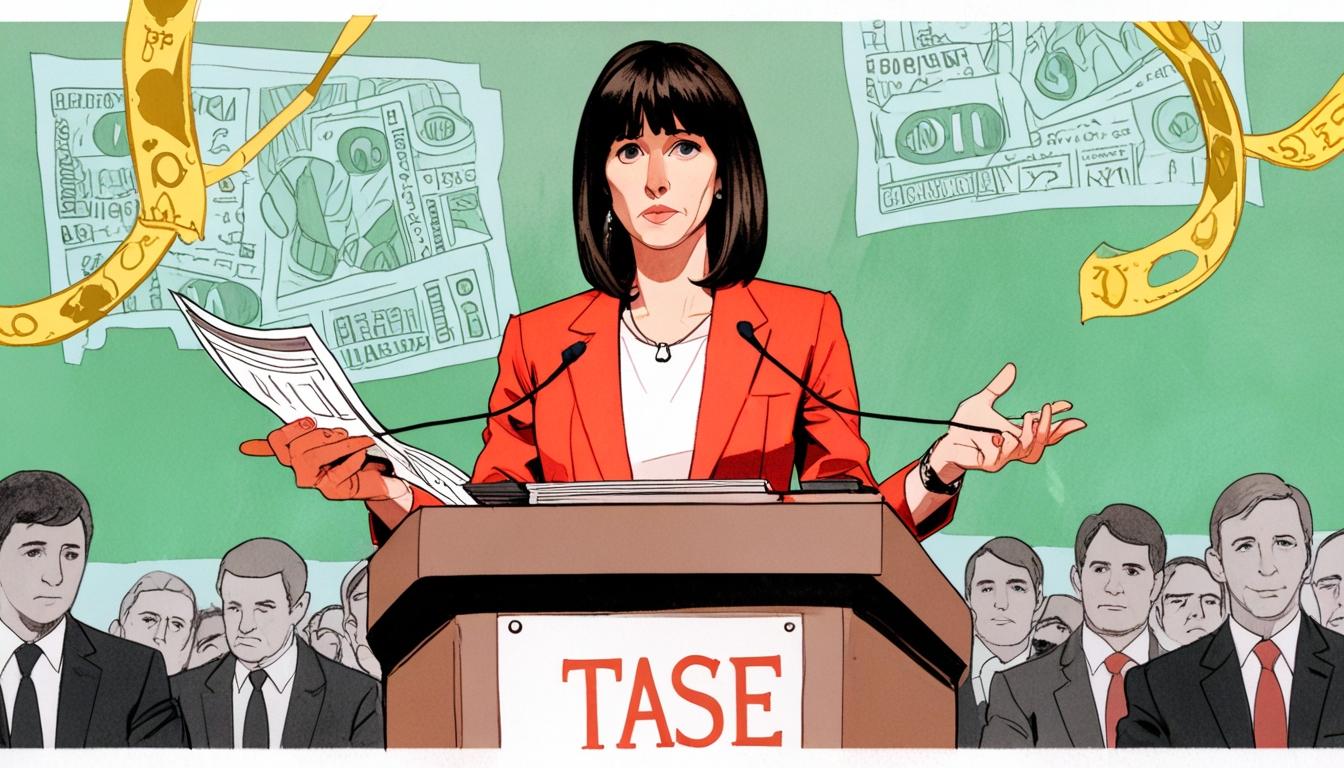Chancellor Rachel Reeves is navigating a crucial juncture as the UK's financial position continues to deteriorate, leading to intensifying speculation about potential tax hikes. Under the new Labour government, the threat of increased burdens on the public looms, as Reeves has suggested that nothing is off the table in her quest to boost government revenue.
The delay of income tax threshold changes until 2028 is raising alarms. If pushed to 2030, it could drag more individuals into higher tax brackets, particularly impacting lower-income pensioners who could soon find themselves stuck paying the 20% tax rate—a consequence of a personal allowance that fails to match inflation and rising incomes. Such fiscal mismanagement underscores the urgent need for an alternative approach that does not penalize hard-working citizens.
Reeves's potential move to revise pension benefits signals a disturbing trend towards targeting the financial security of retirees. The pensions tax relief, costing the Treasury billions, may be at risk. Proposals to standardize relief at 25% or slash the annual allowance from £60,000 to £40,000 could provoke widespread resentment among voters relying on these savings for their retirement.
Highlighting the lack of consideration for ordinary savers, Reeves has floated the notion of drastically cutting the £20,000 tax-free Cash ISA allowance down to a mere £4,000. This creates a chilling prospect for pensioners who depend on ISAs for tax-free income in their twilight years, revealing a government indifferent to the financial wellness of its citizenry.
In a concerning shift, discussions around capital gains tax (CGT) have emerged, with Reeves hinting at aligning CGT rates closer to income tax. This could see rates leap to 40% or 45% for investors and landlords, likely deterring entrepreneurship and stifling economic growth—a notion that ought to alarm anyone invested in the UK's economic future.
Worsening the outlook, inheritance tax (IHT) gifting rules, which currently allow wealth transfers to be exempt after seven years, are in the crosshairs. Plans to extend this period to ten years or abolish the tax-free window entirely would open the floodgates to further taxation on hard-earned family wealth.
The stagnant fuel duty, unchanged for over a decade, may soon become a target for hikes that would unfairly burden everyday drivers and small businesses, all in the name of green initiatives, showing the government’s disregard for the economic strain faced by many.
Additionally, the prospect of escalating stamp duty on second homes and buy-to-let properties could further disenfranchise landlords and investors, while misleadingly presenting such changes as favorable for first-time homebuyers. This relentless taxation could disincentivize investment and worsen the housing crisis rather than alleviate it.
The potential revision of National Insurance rates, especially for individuals just entering the 40% tax bracket, may incite significant resistance from those who feel betrayed by the government's commitment to tax policy. Additionally, extending National Insurance taxes to pensioners' earnings could be a slap in the face to those who have spent their lives contributing to the system.
The proposal to significantly increase self-assessment penalties for late tax returns is yet another tactic in Reeves’s quest for revenue generation, aimed not at helping citizens, but at tightening the government's grip on individual financial circumstances.
Lastly, the ominous prospect of a wealth tax, championed by Labour's radical left wing, threatens to stifle entrepreneurial spirit and innovation. While touted as a potential source of billions, its implementation would only deepen the divide between the government and the hard-working populace who generate the nation's wealth.
As Chancellor Reeves reflects on these proposals, one must wonder whether her administration is truly attuned to the needs of ordinary citizens or if it is merely paving the way for a new wave of tax burdens that will stifle individual prosperity and hinder economic growth. The urgency for an alternative approach resonates louder than ever in these turbulent times.
Source: Noah Wire Services
